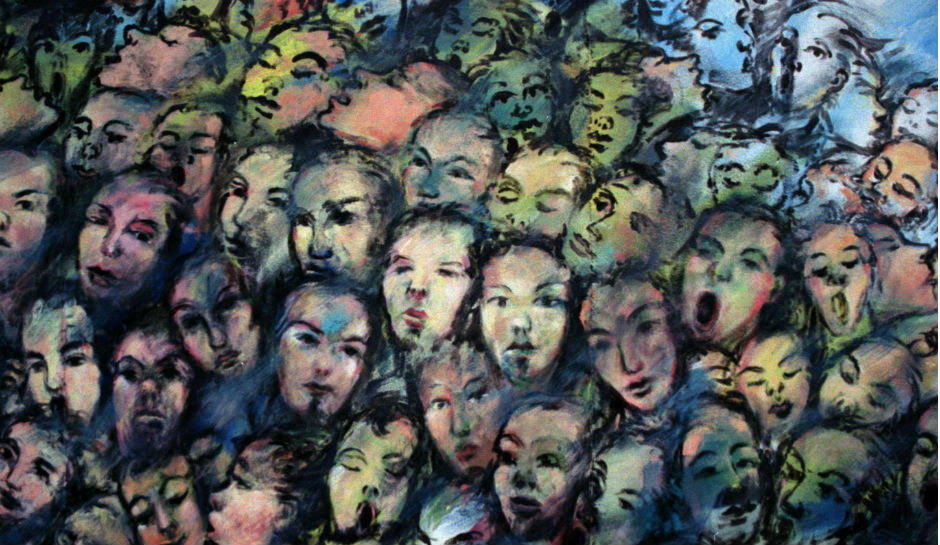Mental illness is an equal opportunity issue and concern. It affects the young and old, female and male — and individuals of every education level, ethnic background, income level, and race.
According to the World Health Organization (WHO), mental illness results in more disability in developed countries than any other group of illnesses, including heart disease and cancer.
In addition, other published studies report that about 25 percent of all United States adults have a mental illness and that nearly 50 percent of U.S. adults will develop at least one mental illness during their lifetime.
The good news is — mental illness can be treated.
What is a Mental Illness?
Mental illness is a mental health condition that gets in the way of day-to-day function, relating to others, and thinking.
To date, dozens of mental illnesses have been identified and defined. To list, they include schizophrenia, obsessive-compulsive disorder (OCD), post-traumatic stress disorder (PTSD), bipolar disorder, generalized anxiety disorder, depression, and many more.
Research suggests that a mental health condition is not the result of a single event. There are multiple, linking causes to mental disorders. In fact, lifestyle, environment, and genetics are influences on whether an individual develops a mental health condition.
For example, a stressful home life or job can makes some people more susceptible. In addition, so does traumatic life events — like being the victim of a crime.
Basic brain structure — in addition to, biochemical circuits and processes — may play a role in an individual becoming mentally ill.
Mental Health Statistics and Symptoms
The National Alliance on Mental Health (NAMH) reports — one in five adults experience a mental health condition every year.
Additionally, one in 17 lives with a serious mental illness — like bipolar disorder or schizophrenia. Moreover, a person who is directly experiencing a mental illness also affects family, friends, co-workers, and communities.
Half of all mental health conditions begin by age 14. And 75 percent of mental health conditions develop by age 24.
Early engagement and support are critical to improving outcomes and increasing the promise of recovery.
Common signs and symptoms of mental illness:
- Hearing voices, having hallucinations, or feeling paranoid
- Withdrawing from activities, friends, or family
- Often thinking about suicide or death
- Often feeling hostile, violent, or angry
- Problems sleeping
- Low energy
- Feeling depressed for an extended period of time
- Extreme mood swings
In some individuals, mental illness symptoms first appear as physical problems — such as back pain, insomnia — even stomachaches.
Recovery and Wellness with Lifestyle and Home Remedies
In most cases, a mental illness will not get better if you try to treat it on your own without professional care. People with a mental illness can often feel better and ease their symptoms talking with a therapist and following a treatment plan.
Treatment may, or may not include medication.
The Mayo Clinic offers things you can do for yourself that will help build on your treatment plan.
- Learn to take up a positive attitude. Try to make your life better by focusing on the positive things in your life. Positive thinking may even improve your health. Keep your problems in perspective. Try to accept changes when they occur. Stress management techniques — including relaxation methods, may help.
- Establish priorities. Managing your time and energy may reduce the impact of your mental illness. Set reasonable goals. When necessary, try to cut back on your obligations. When you symptoms are worse, allow yourself permission to do less. Making a list of daily tasks — or using a planner to structure your time — and staying organized, may also be helpful.
- Avoid alcohol and drug use. Using recreational drugs or alcohol can make it difficult to treat a mental illness. Quitting can be an extremely challenging if you’re addicted. Therefore, see your doctor or find a support group to help you if you can’t quit on your own.
- Don’t make important decisions when your symptoms are severe. Avoid decision-making when you’re in the depth of mental illness symptoms. You may not be thinking clearly.
- Stay active. Exercise can help you manage symptoms of anxiety, stress and depression. Physical activity can also counteract the effects of some psychiatric medications that may cause weight gain. Consider walking, gardening, and swimming — any form of physical activity that you enjoy. Even light physical activity can make a difference.
- Stick to your treatment plan. Don’t skip therapy sessions. Even if you’re feeling better, don’t skip your medications. If you stop taking your medication, your symptoms may come back. And if you stop a medication too suddenly, you could have withdrawal-like symptoms. If you have bothersome drug side effects or other problems with treatment, talk to your doctor before making changes.
Recovery includes meaningful roles in work, school, and social life. Equally important, recovery is possible — especially when you start treatment early and play a strong role in your own recovery process.
Featured image courtesy of Chitrapa via English Wikipedia | Cropped and Resized | CC-BY-SA-2.0

Their is no recovery for schotzophrenia….I am hit! All the drugs to control the symptoms….I worked my entire life until I was 40 and one day it came on so fast and hard I was hospitalized….can’t work anymore I lost my motor functions….it’s treatable but even medicated it sucks!